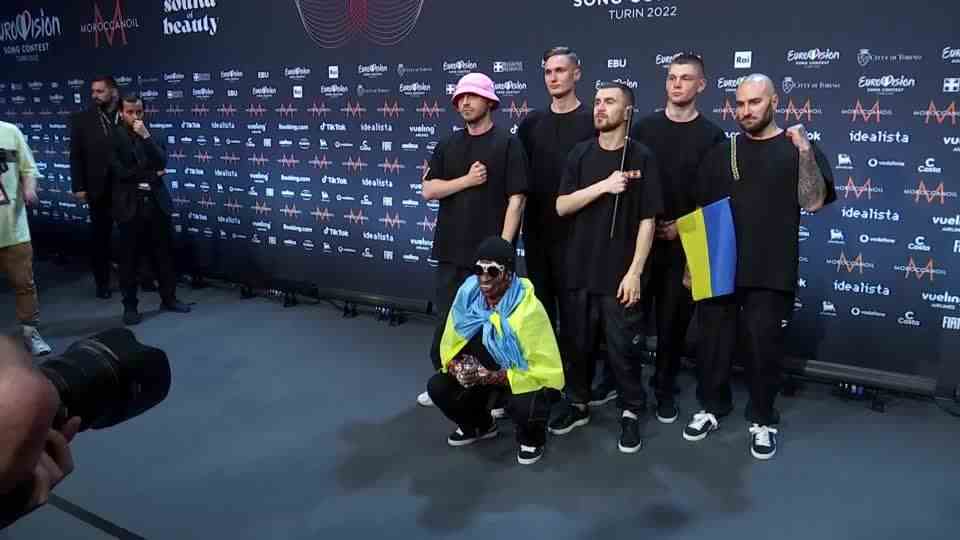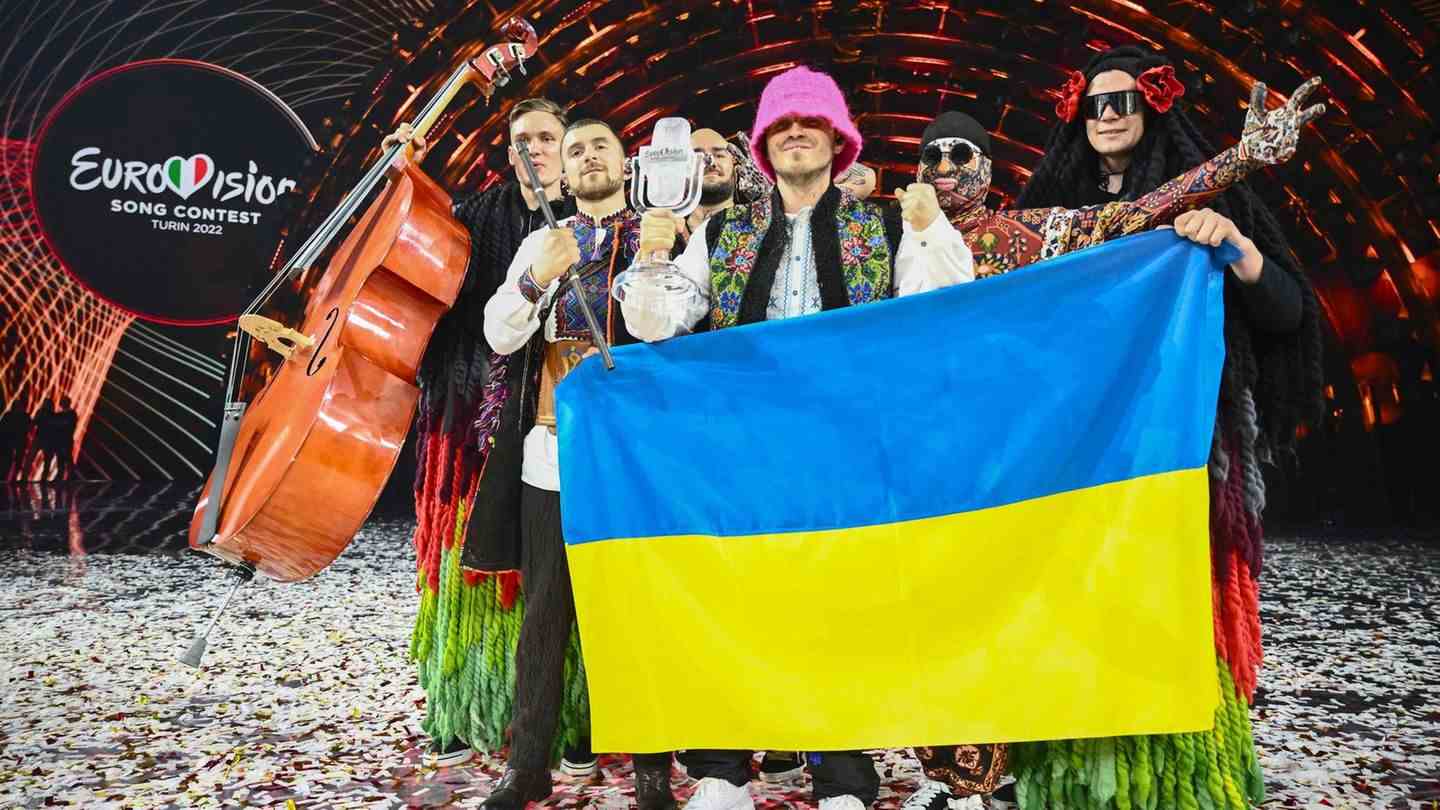Kalush Orchestra
After the success at the ESC, the Ukrainian winners immediately go back to war
The Ukrainian band Kalush Orchestra around frontman Oleh Psiuk (centre) delighted the ESC audience with their performance
© Marco Bertorello / AFP
The victory at the ESC for Ukraine could hardly have been clearer. But the band Kalush Orchestra has no time to celebrate. Their everyday life is called war.
For the members of the band Kalush Orchestra, the trip to Turin was just a short break from everyday life that is determined by war. At the Eurovision Song Contest in the Italian city, the group from Ukraine snatched victory by a wide margin. It was the third success for Ukraine at the ESC after 2004 and 2016. But instead of celebrating the victory properly and basking in the public spotlight, the band immediately went back to war.
Frontman Oleh Psiuk said goodbye to his girlfriend the day after the ESC final and returned to Ukraine, as did the other band members. Men of military age, i.e. between 18 and 60 years of age, are not allowed to leave the country. The band received special permission to take part in the ESC.
Singer Oleh Psiuk supports refugees
The 27-year-old Psiuk has not yet been called up for military service. He is part of a volunteer organization that organizes transport, accommodation and medicine for refugees. Nevertheless, the fighting in his country has been part of everyday life for him and those around him since Russia attacked Ukraine. “Another band member is still fighting at the front. And my friend made Molotov cocktails, a lot,” said Psiuk in front of the ESC in the stern interview. He would also take up arms himself: “I am ready to fight – to the end!”

“When you wake up every day and hear explosions, when you never know which of your friends and relatives are still alive, it means constant tension and stress,” said the rapper, who wrote the winning song “Stefania” about his mother and thus moved hearts all over Europe. Never before has a song received the highest rating from the audience so often at the Grand Prix.
At the end of the ESC contribution, Psiuk called on the international community to help Ukraine and especially the city of Mariupol, which was besieged by Russian troops: “I ask you all: help Ukraine, Mariupol, Azovstal.” Although political statements are actually forbidden at the event, many other artists also showed their solidarity with Ukraine.
Ukraine wants to host the ESC next year
The band doesn’t want to celebrate their victory until the war is over. “Maybe we will have a big celebration after the war, because the victory is great, winning the ESC is fantastic, but so much is happening right now,” Psjuk said at an online press conference on Sunday evening. “I mean, people you know are getting killed or fighting in this war or losing their jobs in Ukraine.”
Traditionally, the winning country is allowed to host the Eurovision Song Contest in the following year. It is still completely unclear whether this will be possible in Ukraine in 2023. However, President Volodymyr Zelenskyy announced that his country would like to host next year. “Next year Ukraine will host Eurovision! For the third time in our history,” he announced – and brought up the largely destroyed city of Mariupol as the venue.
Sources:“Picture” / Volodymyr Zelenskyy on Instagram


